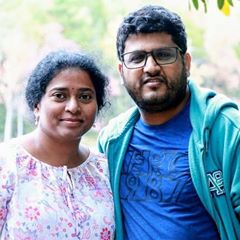Critical thinking is an essential skill that empowers kids to analyze information, make informed decisions, and solve problems creatively. It’s a tool that can help them navigate the complexities of school, social interactions, and even future careers. Developing critical thinking skills from a young age sets the foundation for a lifetime of thoughtful decision-making and problem-solving. Here are three key ways kids can learn to develop this crucial skill:
Encourage Curiosity
For kids, one of the primary ways to foster critical thinking is to encourage natural curiosity. When children are curious, they are more likely to ask questions and seek out answers which develops positive information-seeking behavior. Parents and teachers can nurture this by providing an environment where questioning is welcomed and valued. When a child asks a question, rather than simply providing an answer, guide them to explore the question further. Ask them what they think, how they might find the answer, and what other questions arise from their initial inquiry. This practice helps children develop a habit of thinking deeply and critically about the world around them.

Problem-Solving
Problem-solving activities are another effective way to develop critical thinking skills. Puzzles, games, and hands-on projects challenge kids to use logic, reasoning, and creativity to find solutions. These activities require children to evaluate different strategies, make decisions, and test their ideas. For example, building a model or completing a complex puzzle involves planning, testing, and revising approaches. In a broader sense, it stimulates a child’s ability to analyze and create a course of action for success. Encouraging kids to participate in such activities regularly helps them learn to approach problems methodically and think through the steps needed to reach a solution.

Reflection & Discussion
Reflection and discussion are crucial for developing critical thinking. After completing an activity or solving a problem, encourage kids to reflect on their process and discuss what they learned. Ask them questions like, “What did you find challenging?” “What strategies worked well?” and “What would you do differently next time?” This reflection helps children internalize what they have learned and understand the reasoning behind their decisions. Furthermore, it helps kids see beyond surface level, and recognize patterns that can help them when faced with similar challenges in the future. This kind of approach helps children refine their ideas and develop a more comprehensive understanding of the topics they explore.

In Our Classes…
Martial arts classes help develop critical thinking skills by instilling self-discipline and encouraging students to think critically about their actions and decisions. Students must set goals, follow structured routines, and reflect on their progress, which enhances their ability to evaluate situations and make thoughtful decisions. The discipline required to master techniques and adhere to class rules fosters a mindset of careful analysis and strategic thinking. This process not only sharpens kids’ focus and problem-solving abilities, but also strengthens their overall critical thinking skills.
In Conclusion
Developing critical thinking skills in kids is essential for their growth and success. By encouraging curiosity and questioning, engaging in problem-solving activities, and promoting reflection and discussion, parents and educators can help children build the foundation for thoughtful and informed decision-making. As kids learn to think critically, they become better equipped to handle the challenges they will face throughout their lives. By investing in their critical thinking skills now, we empower them to become innovative and resilient thinkers who can navigate the complexities of the world with confidence and insight. Let’s inspire our children to think deeply, question freely, and solve problems creatively, setting them on a path to a brighter and more thoughtful future!








